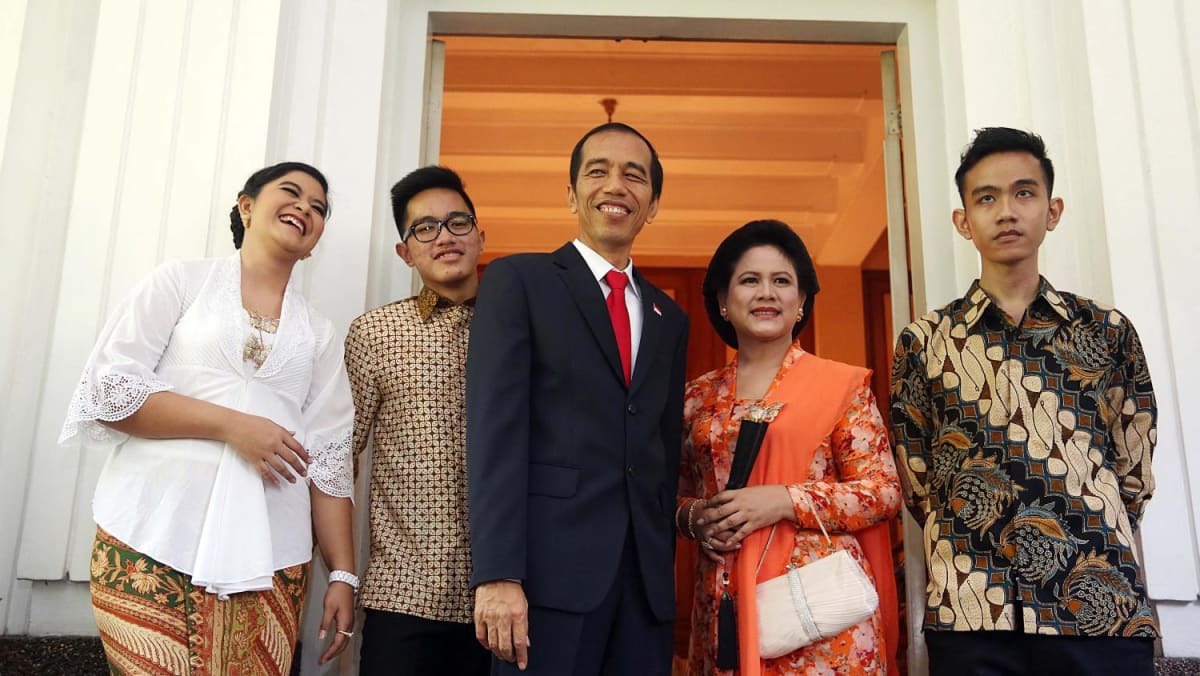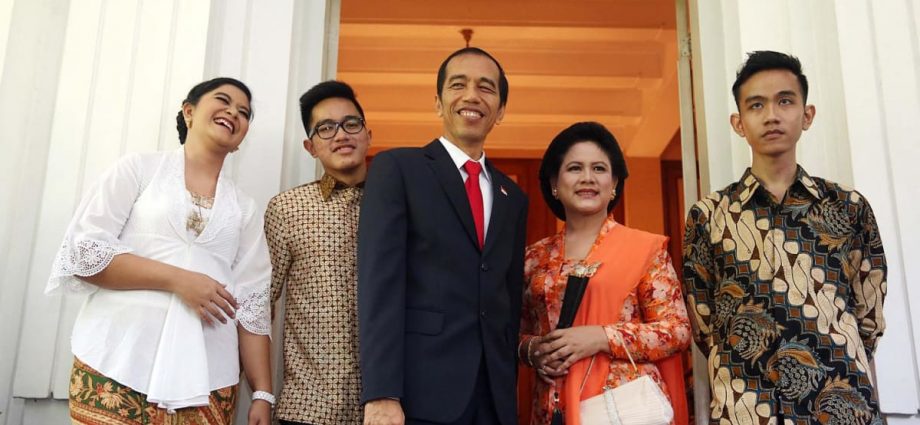
NO FAVOURS
At all stages in the dynasty-building process, Jokowi has defended his family and individual members’ decisions to enter politics as just that. He rejects suggestions that his family is becoming a political dynasty, arguing that this infers that proper registration and electoral processes are being circumvented.
He maintains that his children are receiving no such favours. Given that Jokowi does not have decisive powers within any political party to select candidates, this is not an altogether unreasonable claim.
General trends in perceptions of dynastic politics also matter, as does how the family manages their public image as they seek to expand. In the 2014 presidential election, commentators pointed to presidential candidate Prabowo Subianto’s wealthy background as off-putting for poorer voters compared to Jokowi’s humble beginnings. Jokowi’s children, who have received a similarly privileged upbringing, international education and access to elite levels of Indonesian society, present a different prospect for voters.
Kaesang’s December 2022 marriage to Miss Indonesia finalist Erina Gudoro was a turning point for the Widodo family’s image and profile. The ceremony at Surakarta’s Mangkunegara Palace was livestreamed, much in the style of a royal wedding. But the opulence on display also attracted significant criticism. A common challenge for dynastic families who come from humble origins is how to shift the family’s image into a new phase and bring voters along with them.
The rise of the Jokowi dynasty is a symptom of a political culture in Indonesia that is increasingly open to “family” as another category of political actors alongside oligarchs and parties. It is also a symptom of a society in which corruption, conflicts of interest and nepotism go unchallenged in the absence of judicial checks and balances, which have been dismantled and undermined under Jokowi’s watch.
It remains to be seen if Indonesians have become sufficiently desensitised to a “politics as normal” in which nepotism is unremarkable and endorsed at the ballot box. If they are not, then for the Jokowi family – an emerging political dynasty without its own party vehicle or a secured successor generation – the next 12 months are crucial. But if it is politics as normal, then the Widodo dynasty is well on its way to success in the manner of those that have come before it.
Jemma Purdey is Adjunct Fellow at the Australia-Indonesia Centre, Monash University, Australia. This commentary first appeared on East Asia Forum.

